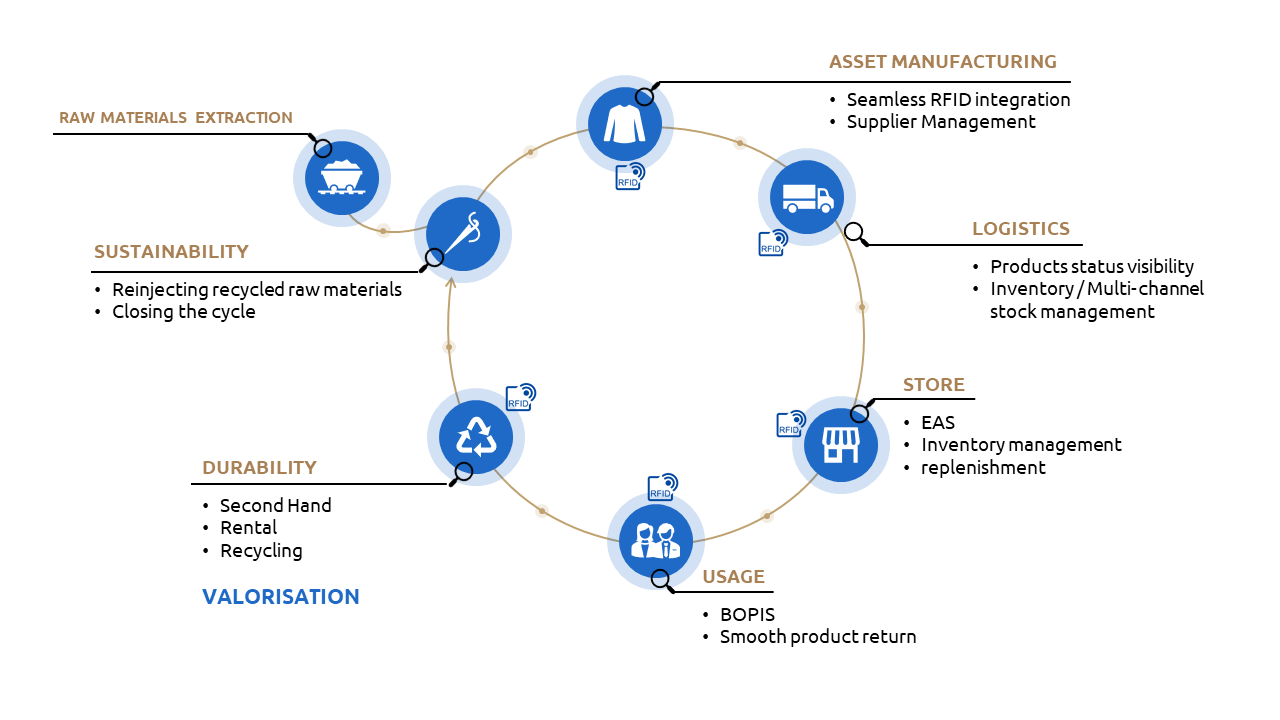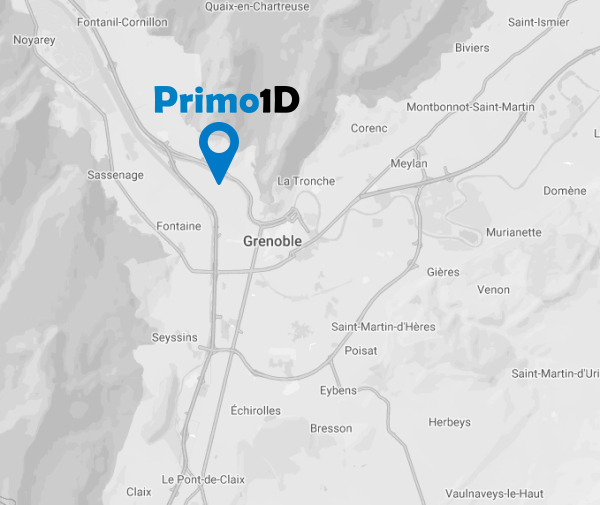A 5R Strategy – Rethink RFID
Rethink, Recover, Repair, Reuse, Recycle. These are the 5 key pillars of a strategy to support circular economy in the textile industry, the 5R strategy.
Rethinking existing solutions impacts not only stakeholders’ solutions but also tools already in place in the textile industry, such as RFID.
Circular economy in textile
Circular Economy is a new rationale, opposing to linear economy.
In a linear economy, a garment lifecycle starts with raw materials extraction or production and ends with its destruction. Every step of the cycle is energy-consuming and pollution-emitting.

For quite a few years, consumers have been favouring more responsible purchases, in terms of social and environmental concerns. Retailers are willing to follow this tendency and switch to circular economy, fostered by national and European strategies regarding circular and sustainable textiles.
In circular economy, retailers rethink their products design and production approach by taking lifecycle into account beyond point of sales (POS).
This new rationale enables garments valorization on their entire lifecycle up to recycling.
Classical RFID limitations in circular economy
When traditional RFID brings many advantages to retailers, it is often associated to garments in a detachable form (according to store procedures or by the user for his/her convenience).
Information essential to garment valorization (such as origin, age, or composition) would henceforth be lost.
Primo1D rethinks RFID and opens new applications
In its traditional form, a tag cannot be totally embedded and undetachable without incommoding users and without getting degraded during its lifecycle.
Primo1D has rethought RFID tags form factor in order to embed them in garments during manufacturing in a reliable and durable way.

In the textile industry, thread and yarn are primary materials that manufacturers use. Thanks to its E-Thread™ technology, Primo1D was able to replicate a thread design compatible with textile fabrication tools and processes, so that one can embed it at source.
This kind of integration makes the tag inseparable from its garment or asset and opens new applications that were impossible until then.
The Primo1D tag enabled the extension of omnichannel applications to circular economy as shown below.





